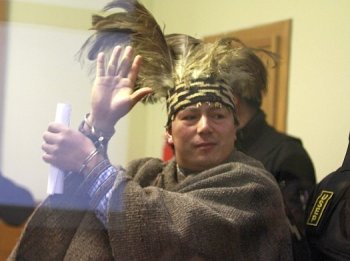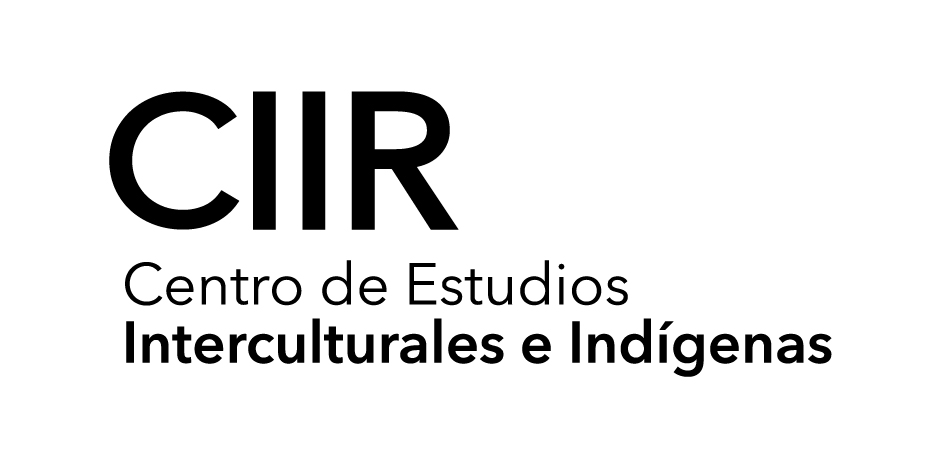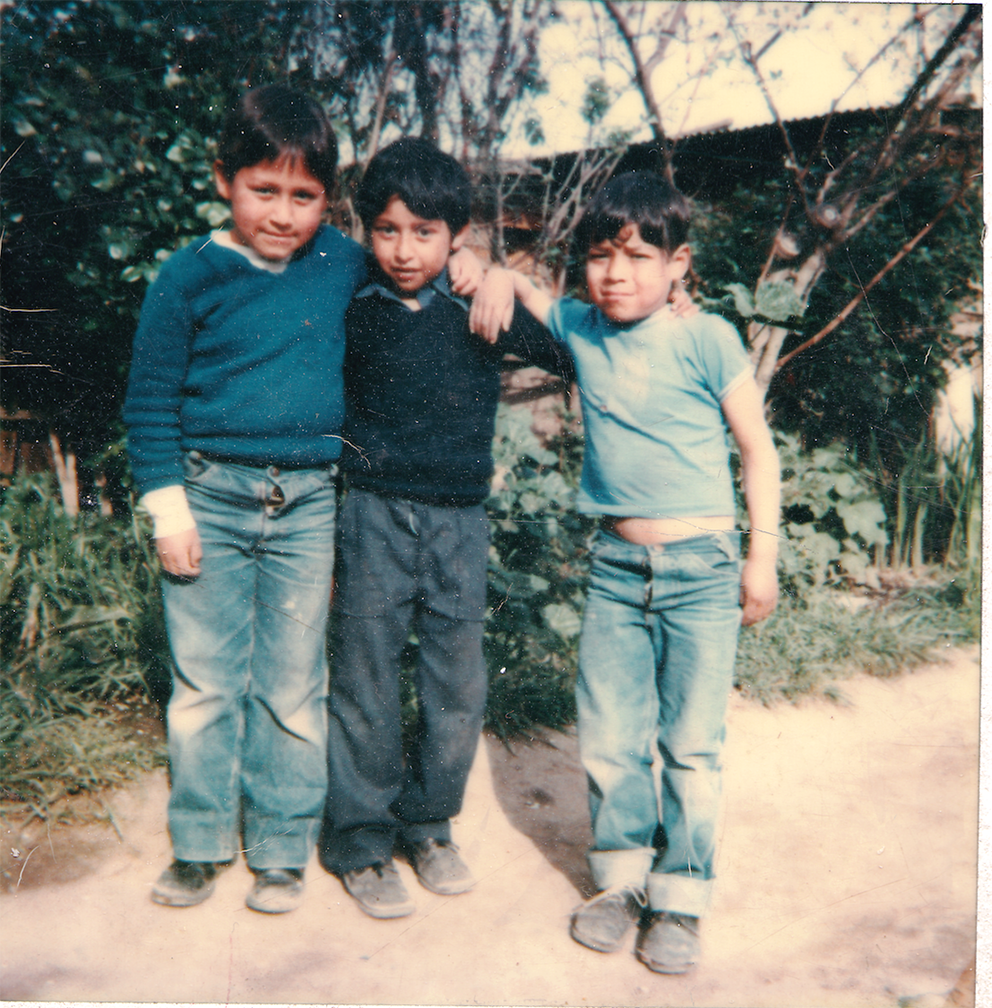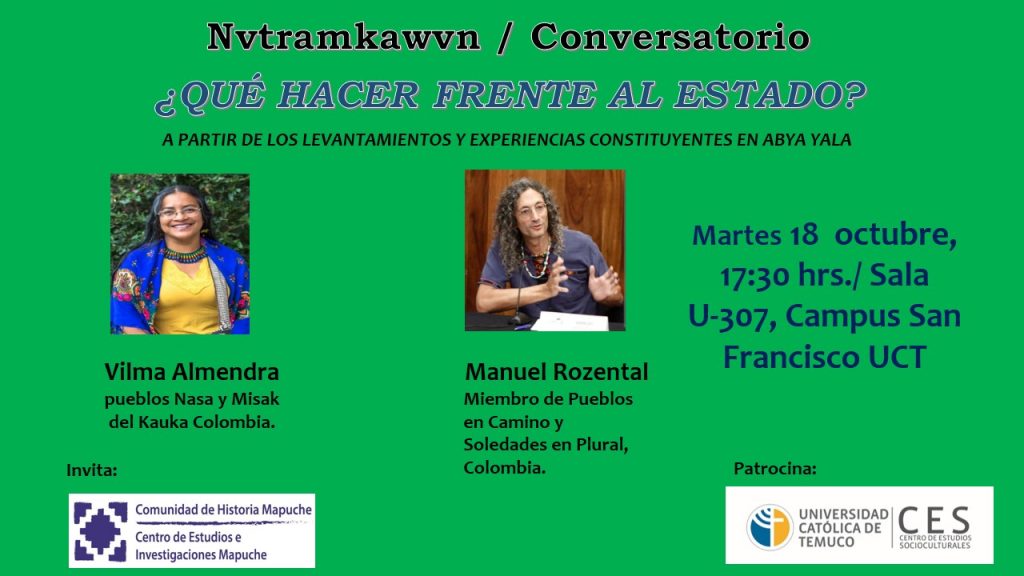Con consternación, nos hemos ido informando en estos meses recientes del injusto trato que ha tenido la autoridad espiritual y cultural del Pueblo Mapuche, el Machi Celestino Córdova Tránsito, quien ha sobrellevado una huelga de hambre por ya más de 100 días. Como resultante de un polémico caso judicial, el Machi Celestino Córdova fue encarcelado en el 2013 y desde entonces sujeto a un trato que denigra su persona en tanto Machi—una autoridad espiritual en la sociedad Mapuche. El 13 de enero de este año, él decidió iniciar una huelga de hambre en forma de protesta y actualmente se encuentra en un delicado estado de salud y riesgo de muerte en Hospital Intercultural de Nueva Imperial, en la región de la Araucanía, sur de Chile. En vistas de estas circunstancias, como académicos comprometidos con los derechos humanos y los derechos colectivos de los Pueblos Indígenas, deseamos hacer un llamado a las personas y a las entidades de la comunidad internacional que les compete a dar una respuesta urgente y a demandar las acciones requeridas al gobierno chileno para que garantice una respuesta que restituya los derechos indígenas y humanos vulnerados en este caso.
Estamos en conocimiento de que la persona del Machi Celestino Córdova fue acusada y encarcelada por una situación en torno a la cual aun no se esclarecen del todo la verdad. En este confuso proceso, nos es evidente que las autoridades chilenas han procedido de un modo errático en relación al trato al Machi Celestino Córdova y han reiterado un patrón de conducta institucionalizada que también se puso de manifiesto en los tratos a otras figuras de similar estatus y que sufrieran el encarcelamiento, como en los casos de la Machi Francisca Linconao y previamente la Machi Millaray Huichalaf. La persona de un o una Machi constituye una figura de enorme significación espiritual, medicinal y social para el Pueblo Mapuche y dicho estatus rebasa las fronteras de Chile. La sabiduría y los valores que encarna un o una Machi ha suscitado el respeto y amplio interés en el mundo, y estudiosxs en las más diversas lenguas y comunidades académicas han subrayado el valor de su exitencia y rol en la sociedad Mapuche. Por lo mismo, nos resulta imperativo exigir al Estado chileno y a las entidades internacionales correpondientes una respuesta urgente y efectiva ante un hecho que constituye un grave atropello a los derechos del Pueblo Mapuche.
Si se considera el delicado estado de salud del Machi Celestino Córdova durante los meses recientes, nos parece inaceptable la indeferencia e inhumana actitud que ha mantenido el gobierno actual chileno encabezado por Sebastián Piñera, algo que también ocurriera durante la anterior administración gubernamental de Michelle Bachelet. En este caso, resulta condenable la negativa de las autoridades judiciales locales y la pasividad del actual gobierno chileno ante la solicitud que el Machi Celestino Córdova hiciera para poder tener un permiso de 48 horas para visitar su Rewe, lugar ceremonial y sagrado esencial en la vida de una persona de su estatus comunitario y espiritual. Esta negativa de las entidades estatales chilenas vulnera derechos culturales ya establecidos en la Declaración de los Derechos de los Pueblos Indígenas de las Naciones Unidas (2007) y, asimismo, reitera una práctica de tipo colonial naturalizada y que resulta impresentable a inicios del siglo veitinuno.
Queremos destacar el hecho que el Estado de Chile actualmente forma parte del Consejo de Derechos Humanos de Naciones Unidas, organismo que se encarga principalmente de la promoción y protección de los Derechos Humanos a nivel global; y también participa la citado en la Mesa del Consejo representando a la región de América. Por lo tanto, apelando a ese rol, exigimos que las autoridades chilenas cumplan con los estándares internacionales de Derechos Humanos y garantice los Derechos Indígenas gravemente vulnerados en este caso.
On the Situation of the Machi Celestino Córdova, a Mapuche on Hunger Strike in Chile
To our dismay, in recent months we have learned about the unjust treatment of Mapuche spiritual and cultural authority Machi Celestino Córdova Tránsito, who has endured a hunger strike for more than 100 days. As the result of an extremely contentious case, Machi Celestino Córdova was incarcerated in 2013 and, since then, has been subject to a treatment that denigrates his person as a Machi—a spiritual authority in Mapuche society. On January 13th of this year, he began a hunger strike as a form of protest and is currently in a delicate state of health, with the risk of death, in the Intercultural Hospital of Nueva Imperial in the region of the Araucania, southern Chile. In light of these circumstances, as scholars committed to Human Rights and the collective rights of Indigenous Peoples, we would like to call for an urgent response on the part of the institutions and people of the international community and demand concrete action from the Chilean government, to guarantee the restitution of the violated human and Indigenous rights in this case.
We know that Machi Celestino Córdova was accused and incarcerated for a situation around which the truth has not been fully clarified. Throughout this confusing judicial process, it has been evident that Chilean authorities have proceeded in an erratic way regarding the treatment of Machi Celestino Córdova, reiterating a pattern of institutionalized behavior that has also been present in other cases of similar nature, such as those of Machi Francisca Linconao and Machi Millaray Huichalaf. The Machi constitutes a figure of enormous spiritual, medicinal and social significance for the Mapuche People, and its status transcends boundaries beyond Chile. The wisdom embodied in the figure of the Machi has attracted respect and a worldwide interest, and scholars across languages and academic communities have highlighted the value of its existence and unique role in Mapuche society. Therefore, it is our responsibility to demand from the State of Chile and the corresponding international institutions an urgent and effective response in regard to a situation that constitutes a grave violation upon the rights of the Mapuche People.
Considering Machi Celestino Córdova’s delicate state of health in recent months, we find unacceptable the indifference and inhumane attitude of the current government of Chile headed by Sebastián Piñera, something that had also occurred under the previous administration of Michelle Bachelet. In this case, it is condemnable the refusal of the local judicial authorities and the passivity of the Chilean government to respond to the Machi Celestino Córdova’s petition for an authorization of a 48-hour visit to his Rewe, a ceremonial and sacred place essential in the life of a person like him. This refusal of the Chilean State authorities violates important cultural rights already established by the UN Declaration on the Rights of Indigenous Peoples (2007); it likewise stages a “naturalized” colonial practice and that is disgraceful at the beginning of twenty-first century.
We want to highlight that the State of Chile forms part of the UN Human Rights Council, an entity that has the primary responsibility to protect and promote Human Rights on a global level. Chile also participates in the bureau of this council as a representative of the Americas. Therefore, appealing to that role, we demand that Chilean authorities comply with international standards on Human Rights and guarantee the Indigenous Rights that have been seriously violated in this case.
23 de abril de 2018
Submitted and signed by:
Luis E. Cárcamo-Huechante (Mapuche), Associate Professor, The University of Texas, Austin and Member of the Comunidad de Historia Mapuche
Pablo Millalén Lepin (Mapuche), Member of the Comunidad de Historia Mapuche and ESL Program student at The University of Texas, Austin
Jossianna Arroyo-Martinez, Professor, The University of Texas, Austin.
Hilda Chacón, Professor, Nazareth College
Amalia Cordova, Curator, Smithsonian Center for Folklife
Marta del Campo, Bilingual Outreach Specialist, Cornell University
Emilio del Valle Escalante (Maya K’iche’, Iximulew), Associate Professor, University of North Carolina-Chapel Hill
Nick Estes (Lower Brule Sioux Tribe), Fellow at the Charles Warren Center, Harvard University
Macarena Gómez-Barris, Chairperson of Social Science and Cultural Studies, Pratt Institute
Charles Hale, SAGE Sara Miller McCune Dean of Social Sciences, University of California, Santa Barbara
Kathryn Lehman, Senior Lecturer, Latin American Studies, The University of Auckland
José Antonio Lucero, Associate Professor, University of Washington
Fernanda Macchi, Associate Professor and Director of the Latin American and Caribbean Studies Program, McGill University
Francine Masiello, Professor, University of California, Berkeley
Kelly McDonough (White Earth Ojibwe/Irish), Associate Professor, The University of Texas, Austin
Joseph M. Pierce (Citizen of the Cherokee Nation), Assistant Professor, Stony Brook University
Shannon Speed (Citizen of the Chickasaw Nation), Associate Professor and Director of the American Indian Studies Center, University of California, Los Angeles
Luis Urrieta, Jr. (P’urhépecha), Professor of Education, The University of Texas, Austin
Ruth Vargas-Forman, Independent Forensic Psychologist and Psychotherapist
Anthony K. Webster, Professor, The University of Texas at Austin
Rony Castillo (Garifuna), PhD student, The University of Texas, Austin
Montserrat Madariaga Caro, PhD student, The University of Texas, Austin




